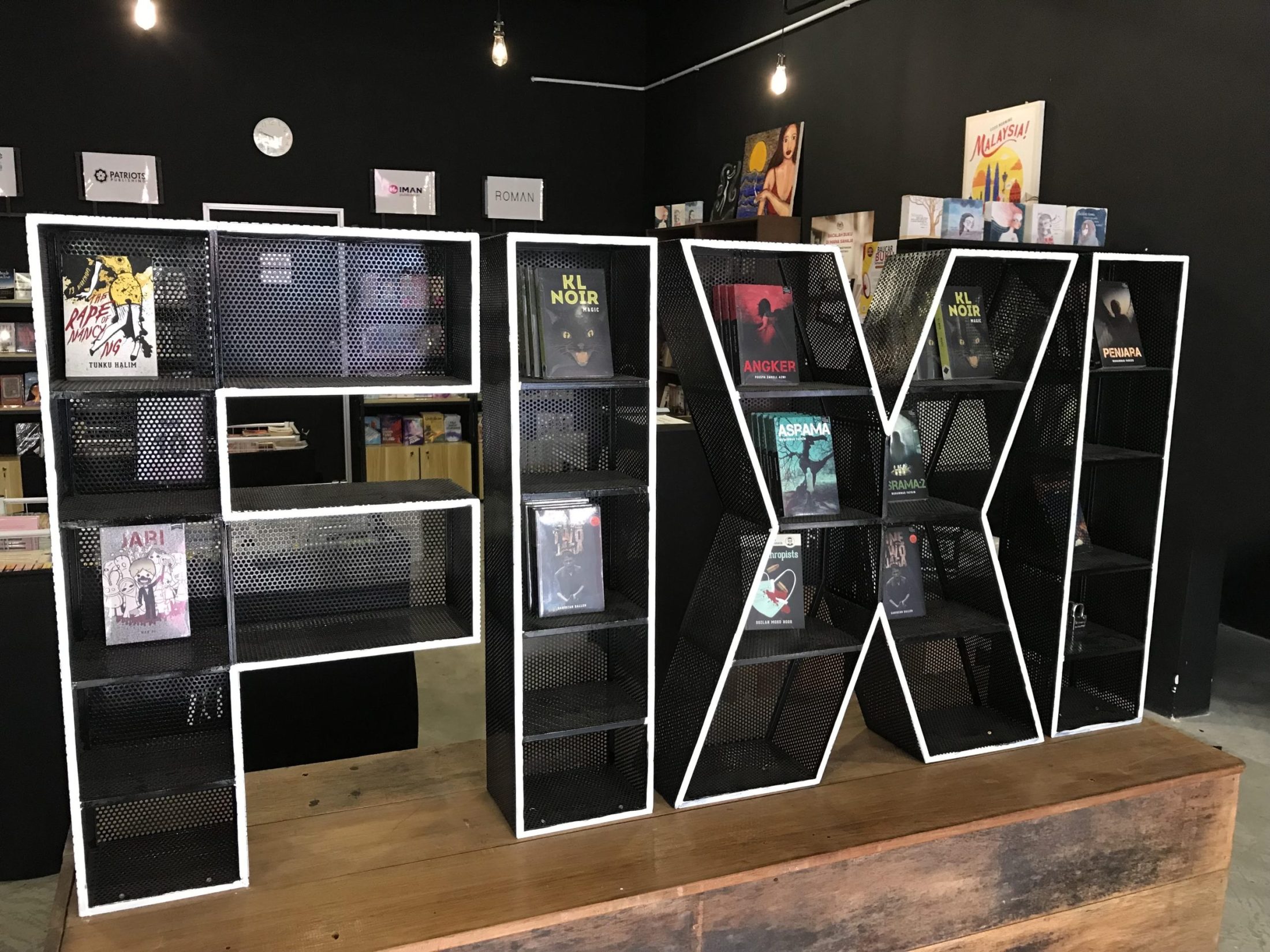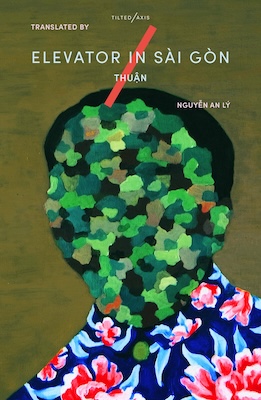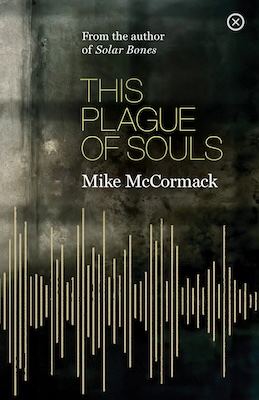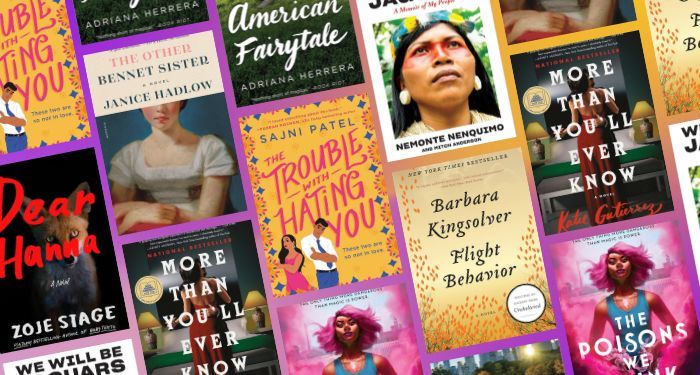Contemporary literature is one of those four-dimensional things that seem to expand whenever you take a closer look. No one really knows more than a corner of it, perhaps a very large one, but a corner nevertheless. This quality, this mercuriality, of literature makes it more endless than any ocean, more filled with uncharted islands and icebergs. Among literature’s many beautiful qualities is the fact that, for each of us, the map of what it is will always be different. That’s the reason we talk about it so much. For some, contemporary literature is Stephen King or J.K. Rowling. For others, James Joyce and T.S. Elliot are the be all, end all of the written word. Evidently, for the 2016 Nobel Prize committee, Bob Dylan was the pinnacle of contemporary literature. For most of us, these are all ridiculous statements.
In the vast, wild territory of the written word, publishing houses step in, identify individual authors, bundle them into categories and groups that often cut across easy identifiers, and make a public statement about what’s worth reading. Each press presents an opinion on what contemporary literature is, or should be. Every publication (ideally) moves the dial—sometimes a smidgen, sometimes a whole degree or two—making space for new voices and perspectives, drawing attention to ideas, and re-forming the literary maps of readers.
At least, this is what I hope for when I look to a new indie publisher—the most gratifying moments in my literary life are those that draw my attention to categories I hadn’t known existed. Moments that reveal whole continents of writing that weren’t on my radar. If you close your eyes and think about it, discovering a serious indie publisher might just be similar to catching sight of land while out at sea. It’s exciting, bracing, and full of untested possibilities.
This list, paired with recommendations on what to read, is designed to elicit such moments. These 7 international publishers make space so that writers from all over the cultural, geographical, and linguistic map can exist in English. Take a look, they’re sure to leave a blip on your literary map.
United Kingdom

Tilted Axis Press
Based in Sheffield and London, Tilted Axis has an expansive vision that only seems to grow larger with every passing year. They promote the Global Majority, releasing literature that’s been “translated into or written in a variety of Englishes,” which, practically speaking, means that you’ll find Bengali, Chinese, Assamese, Armenian, Telugu, Kazakh, and countless other literatures represented in their list—it’s not uncommon for each of the six to nine titles they release in any given year to hail from a different part of the globe. Pair this relentless effort to broaden the literary horizons of English readers with a nose for beauty, wit, and experimentation, that’s Tilted Axis…But don’t take my word for it, read:
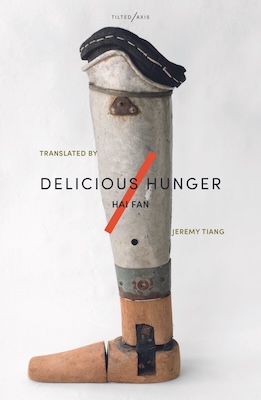
Delicious Hunger by Hai Fan, translated by Jeremy Tiang
These are tales from the rainforest—more than that, these are stories informed by the decades of guerrilla warfare that rent the borderlands between Malaysia and Thailand. Hai Fan spent 13 years in those jungles as a Malayan Communist Party soldier, and his experiences are distilled into dark, absurd, humorous gems that fill this collection.
Elevator in Sài Gòn by Thuận, translated by Nguyễn An Lý
A mind bending archeology of genres and histories from one of Vietnam’s most prolific novelists, Elevator in Sài Gòn follows a Vietnamese expat’s return from Paris to Sài Gòn for her mother’s funeral. The mother’s death is an odd one—she fell down the elevator shaft in her son’s new home, which just so happens to be the first private elevator in all of Vietnam. More strange facts emerge and the daughter finds herself tracking down strangers and loose strands of family history, synthesizing the detective, the archivist, and the mourning daughter into one, fascinating role along the way.
Unbound
In a world where ordinary services are being transformed into subscriptions and tailor-made experiences left and right, Unbound’s innovation feels inevitable. It calls itself a crowd-funding publisher—combining the freedom and adaptability of self-publishing with the expertise and discernment of a traditional publisher. “How does that work,” you ask? Well, like a traditional publisher, their titles are curated. But, before any of the production business gets underway, every book is listed on their website and has its own, individual fundraiser. Anyone can donate to the cause of seeing that particular book make it into the world and, in exchange, receive gifts that range from a signed copy of the yet-to-be-produced title to quirky merch and your name printed at the end of the book. Production only starts after a book gets fully crowd-funded, and if the funding doesn’t come, the book doesn’t get made either. It’s that simple. At this moment, Unbound has 31 titles in the crowdfunding stage, just go to their website to see a live count of how close a title is from getting made, and, if you want, contribute.
What to read:
Seven Days in Tokyo by José Daniel Alvior
The fiction debut from a queer, Filipino author, this is a long-distance love story. Playing out between New York and Tokyo, two young men steeped in the modern ethos of intercontinental relationships and short term arrangements try to turn a passing affair into something more substantial. It’s a story of setting personal boundaries and then tossing them to the wind, of finding one’s own definition of love through heart wrenching trials and errors.
Queer as Folklore by Sacha Coward
A museum professional and tour guide who pays special attention to uncovering marginalized narratives and voices in major institutions, Coward’s debut explores queer culture’s long unsung myths, fairy tales, and stories. Running the geohistorical gamut from Ancient Greeks to pirates to RuPaul, this is a deep dive into objects, images, and ideas that have been transformed over decades and centuries into touchstones of the LGBTQ+ community.
Ireland

Tramp Press
In little more than a decade, Tramp Press, one of Ireland’s only women-founded publishing houses, has garnered countless awards and launched the careers of writers like Doireann Ní Ghríofa, Sara Baume, and Ian Maleney. Their expansive vision of Irish literature embraces expat writers, peripheral voices, and overlooked titles sorely in need of reconsideration. The Recovered Voices series brings forgotten work from Irish women authors back into print, unearthing masterpieces like The Horse of Selene by Juanita Casey and A Struggle for Fame, by Charlotte Riddell, also known as the Irish Jane Austen.
What to read:

Old Romantics by Maggie Armstrong
A debut of interconnected short stories that’s garnered praise far and wide, Old Romantics traces a Dubliner’s interior life as she moves through young womanhood, juggling relationships, family responsibilities, and career misfires. It’s been described (in better words than mine) as a collection of “alternative romances told from a netherworld of love and disenchantment.” And, according to Niamh Donnelly, you’ll want to bathe in its prose.
This Plague of Souls by Mike McCormack
McCormack’s novels are about the big things: memory, history, existence. What kind of lives are worth living? What kind of lives do we actually live? He’s gotten praised by the giants as well, John Banville reads him, so does Anne Enright, and Colm Tóibín. That’s enough to pique my interest, but if you need to know more, read on:
This Plague of Souls is a novel about a man who returns home from prison to find his house desolate, his wife and child inexplicably missing, and a stranger bent on arranging a meeting. When they do meet, an existential conversation ensues that spins out into today’s international chaoses and back again to brooding meditations on family, home, and what really happened to this man’s life.
Malaysia
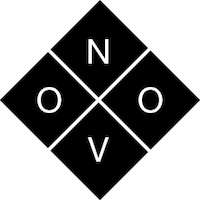
FIXI Novo
Well, FIXI Novo is an imprint, so we’re breaking the rules a little here, but its parent publishing, Buku Fixi does a bit of everything—they champion Malaysian writing, run bookstores, produce the annual literary journal, Little Basket, for new Malaysian writing in English (that’s part of the FIXI Novo imprint), and have been steadily translating major international authors (think Murakami and Stephen King) into Malay. In short, they’re an independent publishing powerhouse. But back to FIXI Novo. This small imprint captures the rambunctious energy of a growing literary community: it publishes a Malaysian crime novel series, a running collection of story anthologies that each revolve around a different Malaysian locale, hosts writing contests, and has also branches out to publish writers from other regions of Southeast Asian. FIXI Novo has an abundance of riches for the English-language reader.
What to read:
KL Noir: Magic, edited by Deric Ee
An anthology of pulpy Kuala Lumpur crime, these twenty stories bring together taxi drivers and cocktail waitresses, vampires and their slayers, druggies and terrifying figures from indigenous mythology. This is a chance for genre fans and literary aficionados to crack open the old conceits they think they know and reimagine crime fiction.
The Sum of Our Follies by Shih-Li Kow
This is the chronicle of an imagined Malaysian town on the cusp of modernity, as observed by an eleven year old girl and a retired lychee factory owner. The odd duo narrate changes cropping up around town, stories of quirky inhabitants who live there, and the young girl’s coming of age. It’s a humorous, gentle novel from a celebrated Malaysian novelist.
India
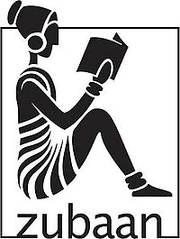
Zubaan Books
Zubaan is a Hindustani word that’s used to dismiss gossip and female chatter. New Delhi-based Zubaan Books has taken that derision for talkative women and turned it on its head, becoming a powerful feminist press that publishes books by and for South Asian women. They’ve expanded from their 2003 founding as an imprint of Kali for Women, India’s first feminist publishing house, into a standalone press that publishes fiction, nonfiction, academic tracts, children’s literature, and runs a parallel nonprofit dedicated to supporting and documenting women’s movements in the region.
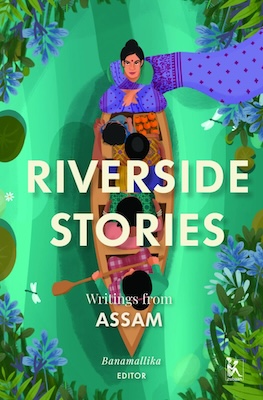
Riverside Stories: Writings from Assam, edited by Banamallika
This is a collection of fiction, non-fiction, poetry and visual stories written by women and transpeople who call the Northeastern Indian state of Assam home. Bucking patriarchal politics and historical repressions that have silenced so many of these voices, this anthology puts forth new, messy, and provocative definitions of local identity and global power. In many cases, these are stories told for the first time.
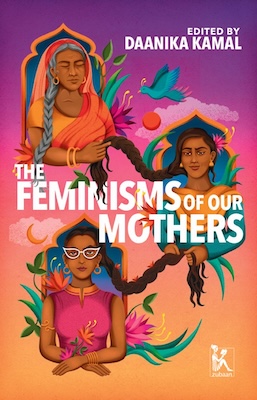
The Feminisms of Our Mothers, edited by Daanika Kamal
A collection of essays from Pakistani women, this is an exploration of how feminism grows, changes, and fractures from one generation to the next. Each author centers their mother and, more precisely, the gap between the experiences that shaped an older generation and the ones that hold sway now. From the depths of these reflections, multiple overlapping feminisms emerge. How can bridges be built between them? How can conflicts, sorrows, and joys, become shared experiences rather than divisive wedges? These and other questions animate this book.
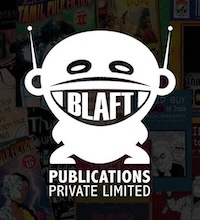
Blaft
A storied book of magic bound in the hide of giant lemurs at a time, millennia ago, when India, Madagascar, and Australia were all connected into one giant landmass. At least that’s one of the meanings behind the word “Blaft.” It’s also an acronym for “Beguiling Literary Anomalies, Faithfully Transcribed.” Either way you want to take it, Blaft is the perfect namesake for this Indian publisher of English translations that’s made a home for genre fiction of all persuasions. From its debut anthology of Tamil pulp fiction translated into English to a collection of folktales and myths from the Indian state of Mizoram, Blaft brings the literary peripheries towards the center. They publish authors across Indian and African and have the distinction of releasing the first English translation of a novel written by a woman in an indigenous African dialect. That’s called Sin Is a Puppy That Follows You Home, but don’t stop reading Blaft’s book there!
What to read:

The Blaft Anthology of Gujarati Pulp Fiction, selected and translated by Vishwambhari S. Parmar, edited by Rakesh Khanna
This is just what it sounds like, a terrific send up of genre fiction from Gujarati writers with local magazine illustrator G. Sandhwani’s artwork thrown in too. In the spirit of Blaft’s anthologies, this is a sprawling work that embraces folklore and grunge, pop phenomena and the world of a thriving, yet under-translated literary culture.
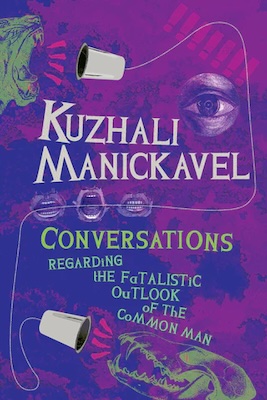
Conversations Regarding the Fatalistic Outlook of the Common Man by Kuzhali Manickavel
A fantastically bizarre, uncategorizable book, Conversations Regarding the Fatalistic Outlook of the Common Man is a collection of 40ish conversations that are a little bit Platonic dialogue and a lot madcap message-board excess. Anonymous interlocutors skewer political language like “raising awareness,” take on racist and sexist tropes in traditional Southeastern cultures, and riff on the state of the world in biting, chatroom prose. Nothing is sacred here, yet, from a maelstrom of sarcasm, this book arrives at an outlook on the world that is anything but cynical.
Singapore

Epigram Books
A champion of English-language writing in Singapore and Southeast Asia more broadly, Epigram funds fiction competitions, operates its own bookstore, and publishes everything from children’s literature to treatises on economics, dramatic plays to poetry. They’re an eclectic, growing publisher that places a premium on building a community for their readers by continually offering new projects and ideas. During the pandemic they developed the Epigram Treehouse, an online slate of activities, videos, and children’s books-based games to engage all the young readers sequestered at home.
What to read:
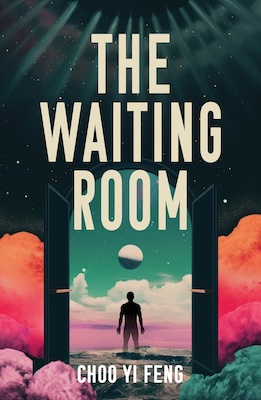
The Waiting Room by Choo Yi Feng
This debut story collection from a queer, Southeast Asian voice stumbles through multiple layers and iterations of Singapore, mixing the fantastic with the raw urges and experiences of youth. From sex workers to revenant mothers and lost children, these tales are caught between this world and another one—neither dreamscapes nor nightmares, yet always a bit of both.

Gus: The Life and Opinions of the Last Raffles’ Banded Langur by Jon Gresham
Gus has been described as an unholy amalgam of Planet of the Apes, The Walking Dead, and The Jungle Book. It’s about talking monkeys leading a revolt against Singaporean government. In the ensuing chaos, Gus, the titular monkey who wants nothing to do with these apocalyptic events, tries to get back to his nature reserve and navigates the dense urban environment of downtown Singapore. Along the way, he encounters a cast of characters, each more colorful than the next—a grief stricken nurse, an aspiring clown, and a ferocious Monkey King. Gresham’s debut novel was a finalist for the 2023 Epigram Books Fiction Prize.

